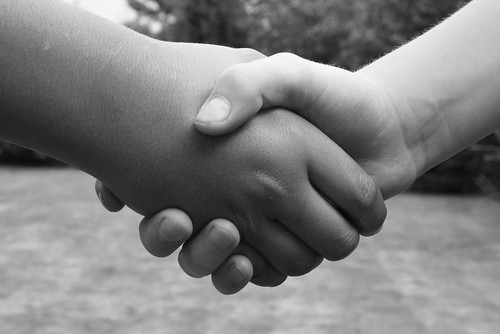In thinking about my teaching, I can't help but reconfirm my basic philosophy, since this affects everything I do in the classroom. I have two main thoughts.
1. Every child in my classroom will be comfortable, supported, successful, and happy.
 Sounds simple enough. But sometimes it is exceedingly difficult.
Sounds simple enough. But sometimes it is exceedingly difficult. Comfortable I can handle. There is a no tolerance policy in my school for bullying but I take it one step further in my classroom. Mistakes are accepted, encouraged, recognized, named. They are not laughed at EVER. It usually only takes one time, one child laughing for me to stop this behavior. But more than stopping it, I encourage my students to discuss their mistakes. "Why did you get that math problem wrong?" "What hurdles did you face while reading that book?" By asking these questions, and others like them, often, I help my students understand that we are all struggling to learn and we can do this together.
And this leads right into support. We have these discussions about struggles openly. Johnny is working on self-control. We will all help him by reminding him gently, kindly, as friends, to stop tapping his pencil. Sally is working on memorizing her addition facts, while everyone else is up to multiplication? We will kindly ask her math fact questions throughout the day and celebrate when she finally gets it. Katy has been working on remembering to use reading strategies to help her understand better? Steve will work with her, since this is also his struggle. Support from others helps the students overcome their embarrassment. And it helps them work harder.
Successful - hmmmm. This one is a bit more difficult. We tend to think of success in terms of test scores and reading levels. But, I have come to realize that, sometimes, children first need to be available to learn before we can begin to teach them. Behaviorally and emotionally, children have to want to continue to learn. And so often, our students are beaten down before they ever get to us. I make it a point, each year, to welcome each child into the room. I will ignore the comments from other teachers about how difficult Billy is to handle, how many times he spent with the principal, how often the parents have to be called, how lazy he is, how rude he is, how unmotivated he is. This is a new year and I will pretend I have never heard any of it.
Expectations mean a lot. I often find that, when I expect these students to be "good," they are. When I expect them to be kind, and point out kindnesses in themselves and others, they work harder to be kind. I help them make friends, change attitudes, and feel more comfortable. And none of that happens overnight. So often, these children are only successful in finally being available to learn. And then the year is over and test scores are still low and reading level is still poor and I feel like a failure. Until I remind myself that this child was not even a student in September. Going into the next grade, maybe he can carry some of those lessons with him and be a student from the very first day of school.
And so I move on to happy. I do expect my students to be happy. Happy does not mean complacent. It means challenged and still having fun. It means playing games, laughing, listening to music, getting comfortable, making choices and working hard. It means struggling with something and finally succeeding. It means celebrating accomplishments with each other. It means having friends and feeling at home. It means wanting to come to school each day and not wanting to leave. This is a tall order. Especially when children come from homes that don't make them so happy.

Each morning I stand outside my room and shake hands with each child, saying hello, asking about their weekend or evening, giving a compliment, asking questions. Sometimes they tell me sad stories about their evenings and I give them hugs. Sometimes they tell me about new babies, or weddings, or family visiting. And we laugh together. Sometimes I hear about awards they've won, games they've played, and movies they've seen. We connect. And then, they can walk into the room, knowing that I care, that their classmates care, and they've let go of the outside world for a little while.
Sounds simple. It takes so little time but it means so much. It's a great way to start each day. And it really does set them up for learning. And, so many children like it that, as children walk past my room to go to their own classrooms, they stop for a handshake and a hello.
And so we come to number 2.
2. I will do whatever is necessary to accomplish my first idea.
I will stop a lesson to address a hurt, an insult, a success, an important question. I will have a class meeting if there is an issue we all need to address. I will learn new tools to keep them motivated and excited about learning. I will revamp, rewrite, rework units to make them more challenging and more fun. I will work hard each night, each morning, each weekend, each vacation to insure that I meet my goals. It's important. It's a child's life.

Image: 'untitled'
http://www.flickr.com/photos/29275360@N03/3072985236
Image: 'Brothers'
http://www.flickr.com/photos/9619972@N08/1350940605
Image: 'Attitude: Honest'
http://www.flickr.com/photos/36624823@N04/4934498430
1 comment:
Lisa, I really appreciate this post. It's been a rather challenging school year and I have too often lost sight of the elements of my own classroom philosophy in the mire of frustration and conflict.
Thank you for reminding me that helping my students be ready to learn and accept each other, even in the face of all that they're working through individually, is crucial. I want to head back into January with a clearer vision and a greater commitment to providing positive support and encouragement for my kids.
Post a Comment